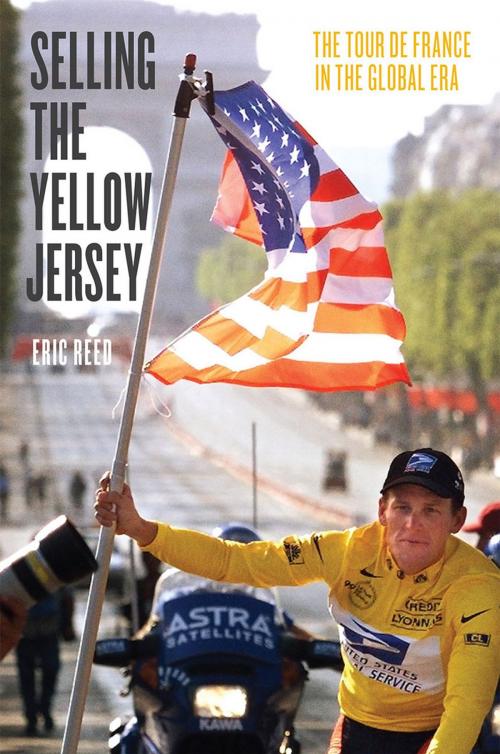| Author: | Eric Reed | ISBN: | 9780226206677 |
| Publisher: | University of Chicago Press | Publication: | January 7, 2015 |
| Imprint: | University of Chicago Press | Language: | English |
| Author: | Eric Reed |
| ISBN: | 9780226206677 |
| Publisher: | University of Chicago Press |
| Publication: | January 7, 2015 |
| Imprint: | University of Chicago Press |
| Language: | English |
Yellow Livestrong wristbands were taken off across America in early 2013 when Lance Armstrong confessed to Oprah Winfrey that he had doped during the seven Tour de France races he won. But the foreign cycling world, which always viewed Armstrong with suspicion, had already moved on. The bellwether events of the year were Chris Froome’s victory in the Tour and the ousting of Pat McQuaid as director of the Union Cycliste Internationale. Even without Armstrong, the Tour will roll on— its gigantic entourage includes more than 200 racers, 450 journalists, 260 cameramen, 2,400 support vehicles carrying 4,500 people, and a seven-mile-long publicity caravan. It remains one of the most-watched annual sporting events on television and a global commercial juggernaut.
In Selling the Yellow Jersey, Eric Reed examines the Tour’s development in France as well as the event’s global athletic, cultural, and commercial influences. The race is the crown jewel of French cycling, and at first the newspapers that owned the Tour were loath to open up their monopoly on coverage to state-owned television. However, the opportunity for huge payoffs prevailed, and France tapped into global networks of spectatorship, media, business, athletes, and exchanges of expertise and personnel. In the process, the Tour helped endow world cycling with a particularly French character, culture, and structure, while providing proof that globalization was not merely a form of Americanization, imposed on a victimized world. Selling the Yellow Jersey explores the behind-the-scenes growth of the Tour, while simultaneously chronicling France’s role as a dynamic force in the global arena.
Yellow Livestrong wristbands were taken off across America in early 2013 when Lance Armstrong confessed to Oprah Winfrey that he had doped during the seven Tour de France races he won. But the foreign cycling world, which always viewed Armstrong with suspicion, had already moved on. The bellwether events of the year were Chris Froome’s victory in the Tour and the ousting of Pat McQuaid as director of the Union Cycliste Internationale. Even without Armstrong, the Tour will roll on— its gigantic entourage includes more than 200 racers, 450 journalists, 260 cameramen, 2,400 support vehicles carrying 4,500 people, and a seven-mile-long publicity caravan. It remains one of the most-watched annual sporting events on television and a global commercial juggernaut.
In Selling the Yellow Jersey, Eric Reed examines the Tour’s development in France as well as the event’s global athletic, cultural, and commercial influences. The race is the crown jewel of French cycling, and at first the newspapers that owned the Tour were loath to open up their monopoly on coverage to state-owned television. However, the opportunity for huge payoffs prevailed, and France tapped into global networks of spectatorship, media, business, athletes, and exchanges of expertise and personnel. In the process, the Tour helped endow world cycling with a particularly French character, culture, and structure, while providing proof that globalization was not merely a form of Americanization, imposed on a victimized world. Selling the Yellow Jersey explores the behind-the-scenes growth of the Tour, while simultaneously chronicling France’s role as a dynamic force in the global arena.















